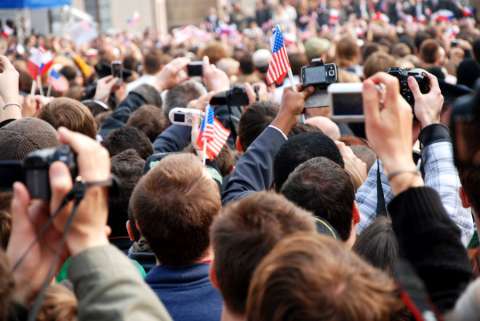Tuesday, November 8 is election day in what is shaping up to be a busy midterm election year. That means that political campaigns, and the communications and marketing professionals that they hire, are sending campaign-related text messages in enormous volumes. Political campaign messages are afforded some exemptions and privileges under the Telephone Consumer Protection Act (TCPA). However, new policy changes from mobile carriers are introducing new challenges to efforts to connect with voters.
As covered in our guide to political calling, political and non-profit campaign calls to landline numbers are generally exempt from the TCPA’s do-not-call rules. The TCPA’s automatic telephone dialing system (ATDS) rules still apply to political calls but SCOTUS’s ATDS definition from the Facebook v. Duguid decision makes texting the safest channel for avoiding ATDS complaints—outside of states that have their own restrictions and autodialer definitions like Florida and Oklahoma. But new carrier-level restrictions are in effect for the first major campaign season this year.
Mobile carriers such as AT&T, Verizon, and T-Mobile have implemented new 10DLC rules for high volume callers that use 10-digit long code phone numbers to text consumers. These rules apply to organizations that send more than 3,000 messages per day and use more than 5 long code numbers to do so. Qualifying callers must register with the Campaign Registry or face high fees, slower delivery rates, and possibly having their messages blocked entirely. 10DLC rules also require that callers only send messages to consumers who have given consent to receive such messages. For most callers, including larger political callers, these rules may be an additional level of regulatory hassles—albeit ones imposed by private companies rather than government entities—but don’t represent a significant departure from standard, consent-based best practices. But the rules do dramatically alter the requirements to conduct calling campaigns that rely heavily on peer-to-peer (P2P) messaging.
A P2P campaign is essentially a text message campaign that is conducted by individuals texting with the recipients of the campaign, usually with the aid of an app. Bernie Sanders’s 2016 primary campaign was the first to use P2P at a large scale for a political campaign. It has since become the primary mode of political campaign texting. According to a 2020 FCC Declaratory Ruling, these sorts of P2P campaigns are not subject to the TCPA’s ATDS rules and thus don’t require prior express consent. The carriers’ 10DLC rules, however, do apply to P2P campaigns and thus do require some sort of consent-based opt-in.
When the 10DLC rules were first announced in 2021, political groups affiliated with the Democratic Party argued that the rules would unduly hamper their efforts and thus restrict citizens’ political engagement. 13 Democratic senators sent letters to the CEOs of T-Mobile and AT&T asking them to delay the implementation of 10DLC until after that year’s off-year election day in November. The letter was successful but now, for the 2022 midterm elections, the rules are in effect.
The consequences for political campaigns that do not comply with the 10DLC rules are less severe than the consequences of violating the TCPA or other laws. Call recipients can’t sue callers for 10DLC violations because they are simply mobile carrier policies, not legal regulations. But callers that fail to register and don’t have proper consent risk having the deliverability of their campaigns throttled. According to Vox, in June, “a Democratic National Committee texting campaign, meant to notify voters that it was primary day, provide them with information on making a voting plan, and invite them to attend a free virtual training on mobilizing others, was suspended after at least five recipients of the roughly 50,000 registered complaints about the unsolicited blasts.” Carrier-level efforts to reduce illegal or merely unwanted calls and texts make it likely that policies such as 10DLC will continue to be implemented. As a result, political campaigns that do not make every effort to comply will struggle to effectively reach voters.





